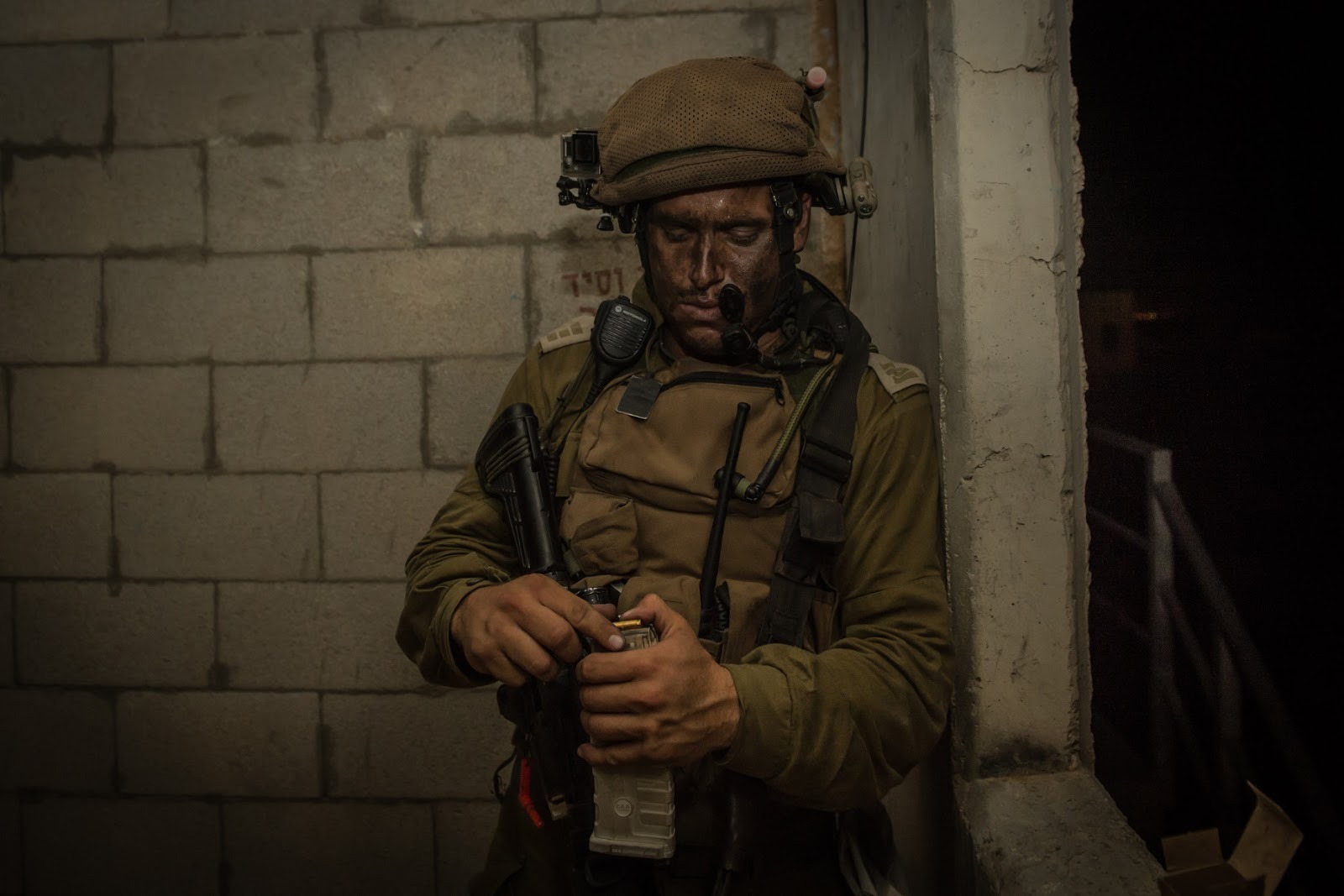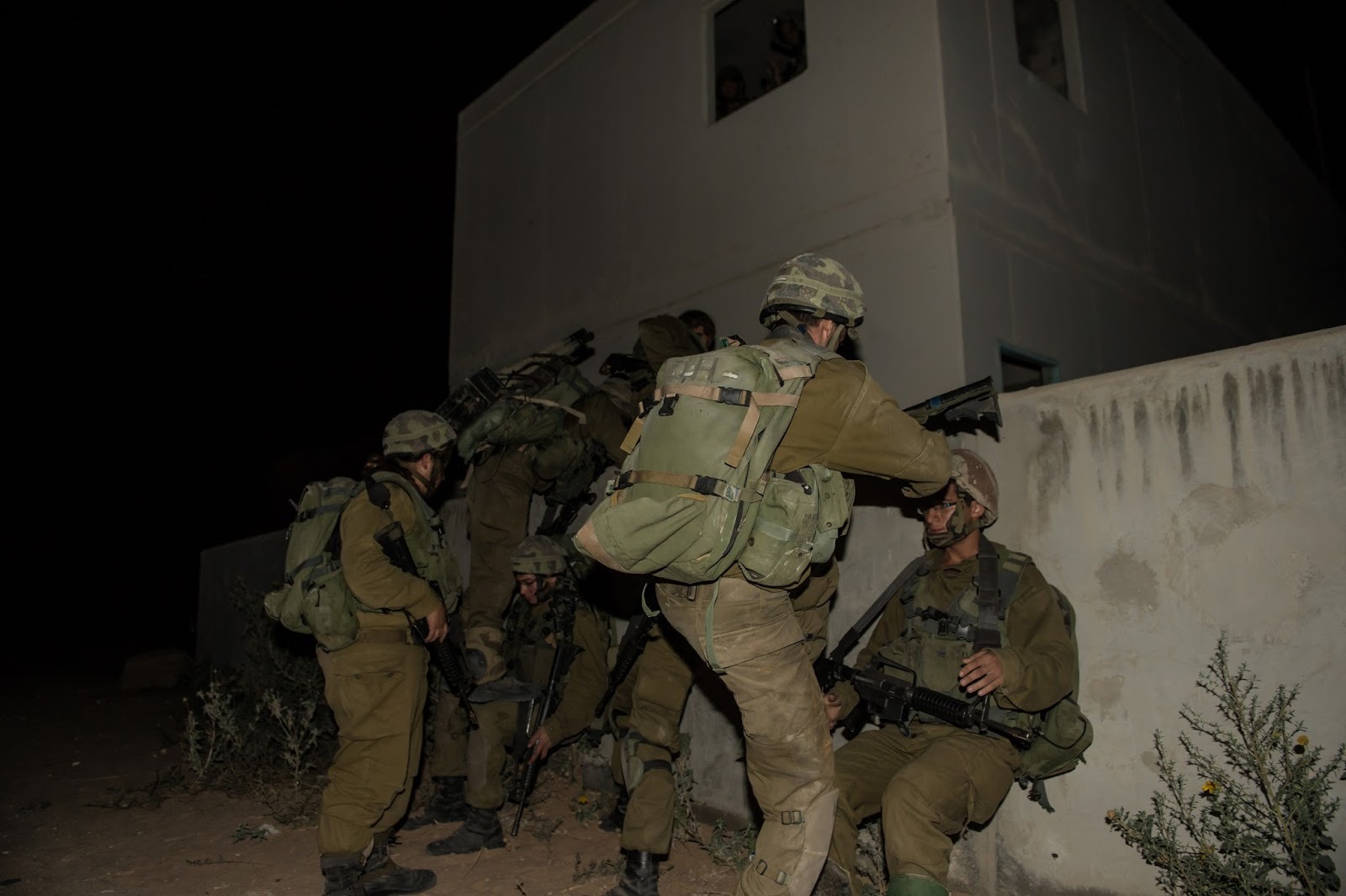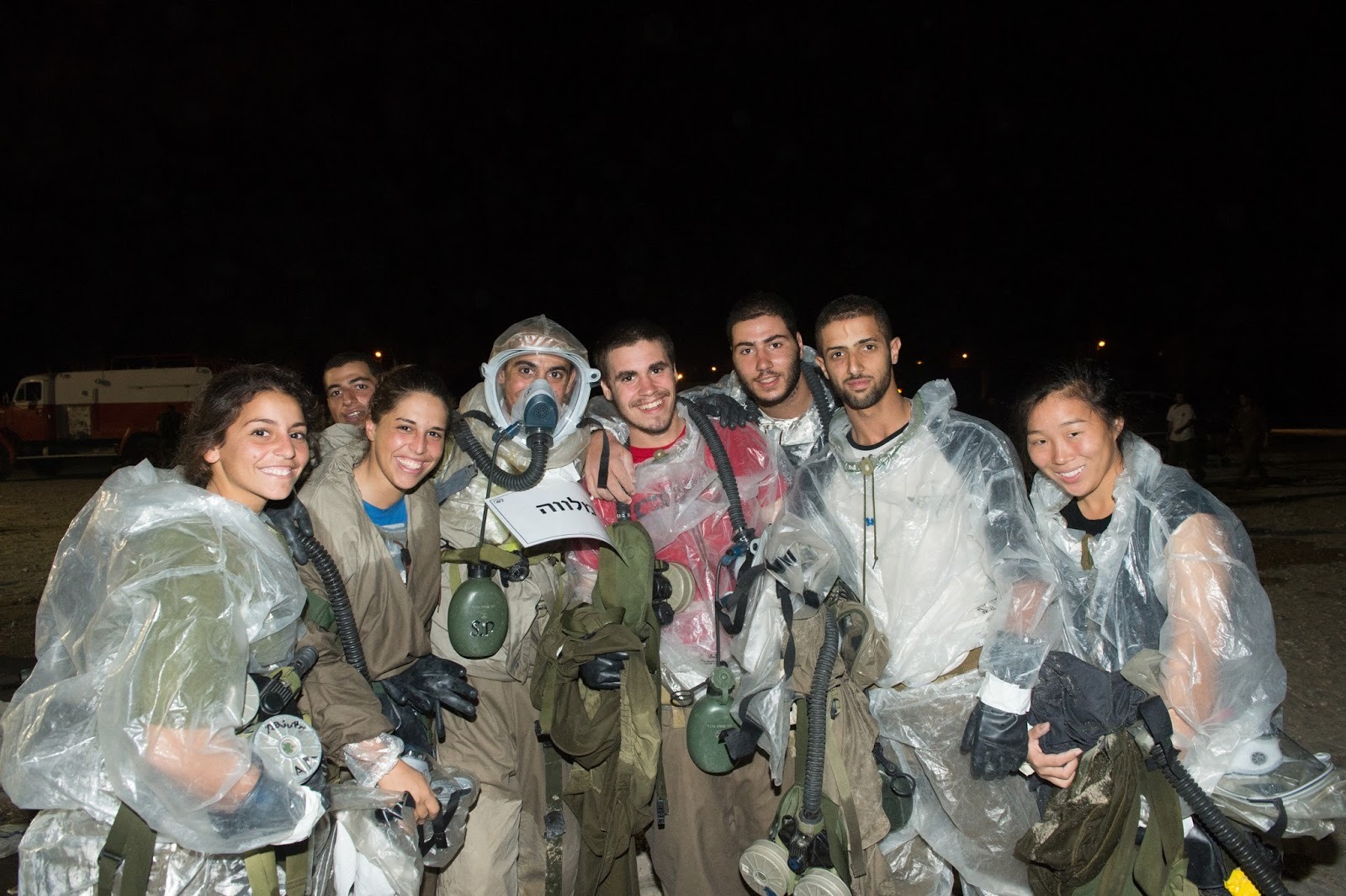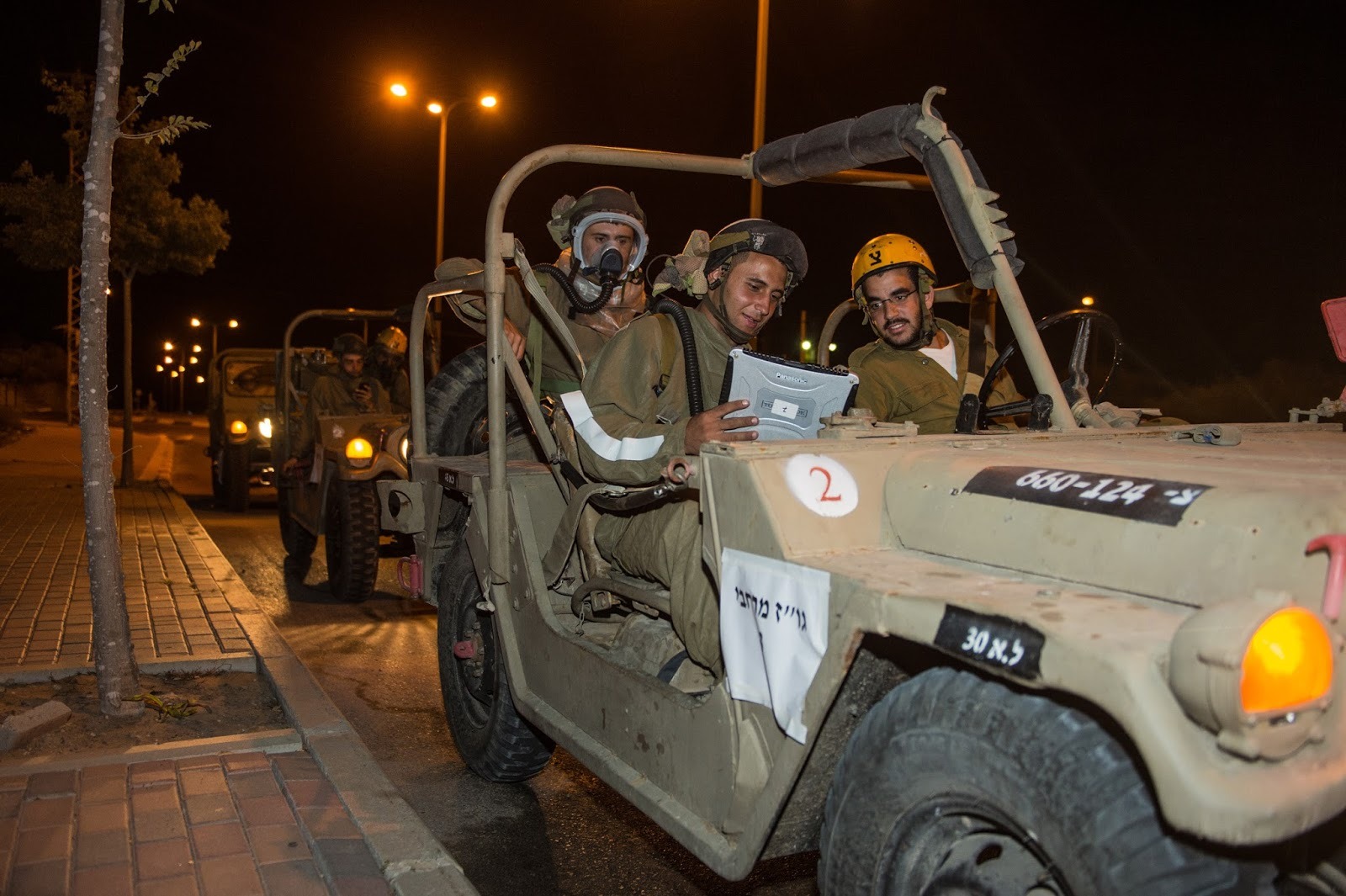The Final Test: IDF Search & Rescue’s “War Week”
After eight long months of intense training, soldiers from the Home Front Command’s Urban Search and Rescue Brigade went through a final 36-hour test of their knowledge and preparedness.

The soldiers of the Urban Search and Rescue Brigade have a unique set of skills. Training in rescue operations and atomic, biological, and chemical (CBRN) warfare combined with infantry arms training gives these soldiers a versatile set of tools to combat a variety of scenarios.
As a part of the IDF Home Front Command, these combat soldiers are tasked with responding in emergency situations. They are responsible for defending Israel’s civilian population during both civil and military emergencies .
Recently, the Search and Rescue soldiers completed the final stages of their advanced training during a simulated “war week.” The following is an in-depth look into the initial 36 hours of drills and exercises.
Early Morning Drills
Sirens blaze through a camp of tents and the soldiers quickly rise, put on their uniforms, and gather their equipment. This is the first training exercise of the unit’s “war week.” The scenario: rockets have fallen in Israel and civilians are trapped under the rubble of collapsed buildings.

![]()
The 200 soldiers of the Urban Search and Rescue Brigade have 30 minutes to get to the site and evaluate the situation. Each of the four companies is assigned a unique location with different challenging obstacles.

![]()
![]()

“It’s our job to rescue the civilians trapped inside the rubble, including seven babies,” said Cpl. Ariel while explaining his team’s task during the drill. The babies were actually life-like dummies used during training to represent wounded individuals. The soldiers were tasked with meticulously digging through the rubble to find the dolls which were scattered throughout the site.

![]()
These dummies must be treated as if they were real victims during an emergency situation. As the soldiers search through the rubble, they must keep the dolls from harm and extract them safely from the collapsed building.
After a grueling 12 hours of search and rescue in the rubble site, the battalion receives a new task. They have five hours to pack up all of their equipment and prepare for the next mission.




Combat and Urban Warfare Training
It is just past midnight and pitch-black outside and the soldiers are scattered throughout a training ground. The long day has exhausted the soldiers but the new objective is clear: search a house for a wanted terrorist and stop any illegal activities taking place inside.
The brigade splits into teams which tactically scour the training ground, turning corners and climbing over concrete walls and through windows in a search for the wanted terrorist. During their service, the majority of the soldiers will serve in Judea and Samaria and perform arrests and guard duty in an urban environment. Therefore they must prepare for any scenario.
“It’s critical that we execute drills like these at a high caliber,” explained Cpl. Yasmin, a soldier in the Search and Rescue Brigade. “We will face these challenges in real-life when we finish our training.”


Atomic, Biological, and Chemical Weapons Scenarios
As the sun rises, the soldiers have finished sweeping the village and conducting searches when they receive their last task. The soldiers are told that CBRN weapons have landed in a community in southern Israel. They must find the source and clean the area.
Unlike conventional rockets, CBRN weapons do not leave tell-tale signs of their existence. Instead, they release chemicals into the atmosphere and soil and are much more difficult to identify. The trainees run to their jeeps, put on their hazmat suits, and head out to the affected location.


As the soldiers scour the affected area, they identify training rockets in small secluded areas. The teams secure the area and clean the space, stopping the threat and mitigating the risk to the civilian population.
Although the soldier’s territory is now secure and clean, the trainees must also undergo a cleaning process to remove any harmful chemicals. The hazmat suits, jeeps, and soldiers themselves are cleaned to ensure no traces of chemicals are found.


After a relentless 36 hour exercise, including three distinct drills, the soldiers are greeted by a ceremony in which they receive their “combat pins,” a special addition to their uniforms. The soldiers of the Urban Search and Rescue Brigade have long awaited this moment and the training base commander, Lt. Col. Shlomi Ben Moocha, was there to congratulate them.
“You all have a lot to be proud of. You have not had an easy service,” he encouraged. “During Operation Protective Edge you were there side-by-side with the civilians and now you are here. I am very proud of you.”



